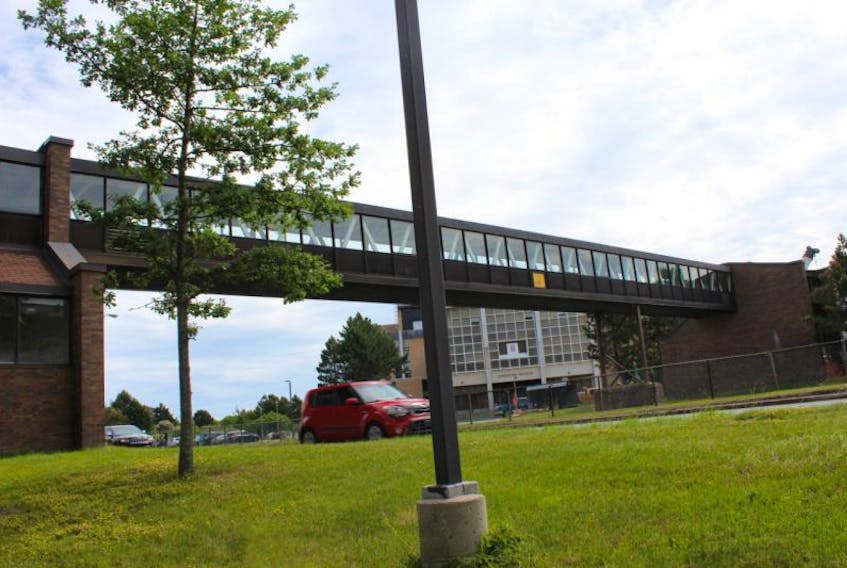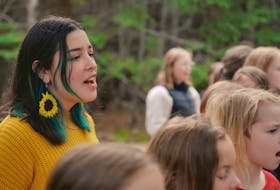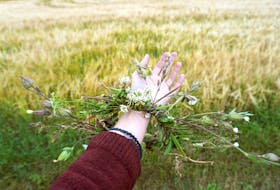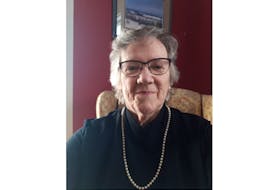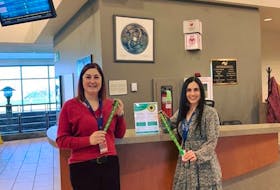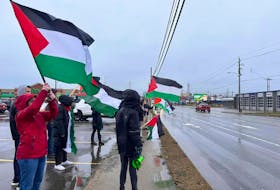Thirty-nine years ago, a young woman lost her life crossing Prince Philip Parkway, a four-lane highway which still bisects Memorial University’s St. John’s campus.

Thirty-nine years ago, another young woman made a suggestion that would change how she looked at influencing public policy then and thereafter.
Up until then, my greatest acts of rebellion had been wearing earrings before I was allowed in my Catholic elementary school, and sporting a non-regulation, blue-ribbon, ornamented white blouse for school pictures.
On Oct. 17, 1980, that all changed.
It was an ordinary day, a typical Friday, nothing special. Halloween was a couple of weeks away and we were a month out from midterm break.
I was co-editor of the student newspaper, The Muse, with David Roe, now deceased. We had just finished distributing the latest issue, which (ironically) contained a spoof centrespread feature profiling the "Parkway Safari," in which hapless students were captured by car-driving big game hunters.
Our satiric piece, meant to draw attention to a very serious and longstanding concern, would instantly become questionable, morbid, even prescient.
The news that someone had died struck us all speechless.
In short order, there we were, gathering near one of the principal crosswalks by the dining hall. A few started walking back and forth, exercising their right to cross. More joined us, and traffic stalled.
The anger, the sorrow, the frustration were all palpable. Before Judy Lynn Ford’s tragic death that morning, all the pleas, letters, meetings, editorials, council comments — none had provided the results we wanted: the installation of overhead crosswalks.
I remember hearing shouts and seeing a phalanx of young fellows coming up the road. A volunteer at the paper had a friend in one of the residences. His buddy had all the class schedules and quickly marshalled reinforcements.
The police soon showed up, but as I recall things were very civil and polite. We were steadfast, many of us still not quite believing that a student had died that morning on a crosswalk. The very same crosswalk we were now occupying, in fact.
There was no conscious decision not to wrap it up after a couple of hours. The anger, the sorrow, the frustration were all palpable. Before Judy Lynn Ford’s tragic death that morning, all the pleas, letters, meetings, editorials, council comments — none had provided the results we wanted: the installation of overhead crosswalks.
We had been told they would cost too much money; perhaps next year, a little more study, use what’s already there, etc.
I don’t think any of us on site thought we would stay there for five days. At peak, the estimates were 2,000 people. Given the university at the time had about 5,000 full-time, part-time and graduate students, the parkway occupation quickly became a very big deal.
Today, the campus is bigger, the students have quadrupled in number, the bureaucracy is still, based on insider reports, almost as impenetrable as it was then.
And yet, as the climate change protest a few weeks ago shows, injustice, lack of fair play and a driving need for change will provoke and sustain action.
Looking back at the events which led to the occupation of the parkway following Ford’s death, and which ultimately led to the construction of two overhead crosswalks — long identified as the best solution possible to having a highway cut through the campus — I wonder still at the power of five words: “We should have a demonstration.”
I learned several things during those five days:
- When you need to, you can survive on very little sleep.
- People are kind and generous — food, coffee, blankets appeared throughout the weekend, letters and calls of support, etc., all fortified our resolve.
- You can unite people and organize teams efficiently without the internet. but no matter what tools you have, you can’t succeed unless people know exactly why you are there. Clarity of purpose is paramount.
- While there is a place for anger in motivating people, I learned civility, steadfastness and open communication cut through a lot of clutter and together speak volumes.
- Keeping things simple — be it your messages, demands, results — helps immeasurably.
The skywalks are gone. The student centre building now spans the road.
But the lessons learned almost 40 years ago still linger.
Martha Muzychka is a writer and consultant living in St. John’s. Email: [email protected] Twitter: @marthamuzychka
MORE FROM MARTHA MUZYCHKA

